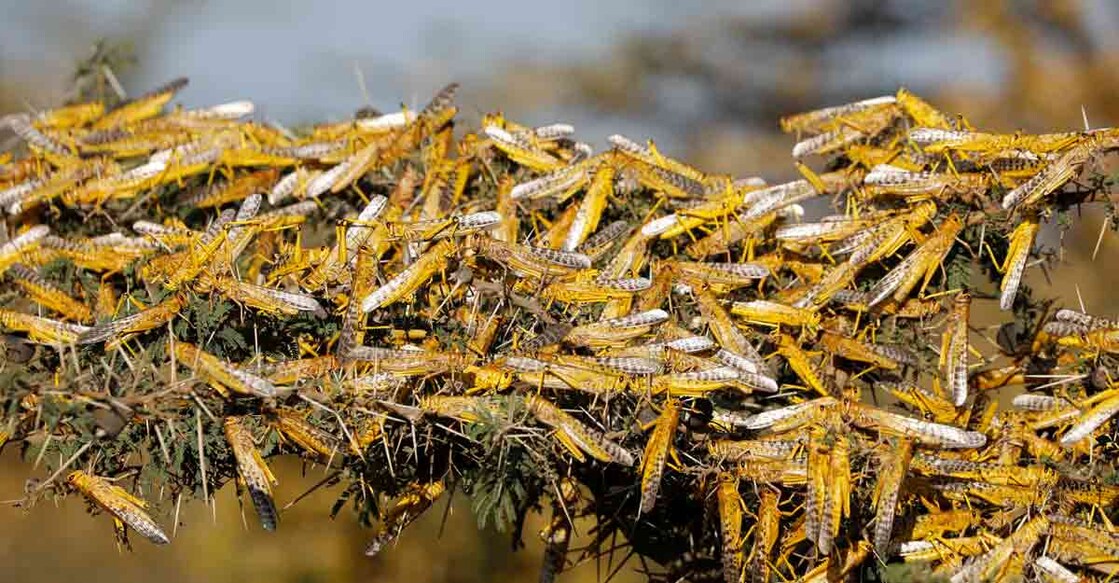Swarm of locusts attack farmlands in several states, experts warn of crop losses

Mail This Article
A new wave of locust attacks has alarmed India's farmers and experts warn of extensive crop losses if authorities fail to curb fast-spreading swarms by June when monsoon rains spur rice, cane, corn, cotton and soybean sowing.
Desert locusts have engulfed around 35,000 hectares in India's seven heartland states, threatening some vegetable and pulse crops, government officials and farm experts said.
Despite large-scale infestations, the government and agricultural experts do not foresee major crop damage for now as it is the lean season - the gap between the previous harvest and the next planting season.
But experts warn that the federal and state governments will have to stop locusts in their tracks in the next couple of weeks to ensure that swarms do not end up devouring summer crops.

"Despite the unprecedented scale of the locust attack, we haven't seen any major crop loss, but we've got a very short window to tackle the problem. Otherwise, we won't be able to save our summer crops," said Bhagirath Choudhary, director of the South Asia Biotech Centre, a non-profit scientific society.
India is battling its worst desert locust outbreak in decades with infestations radiating through much of the western states of Gujarat, Rajasthan and Maharashtra, central state of Madhya Pradesh and Punjab, and Haryana and Uttar Pradesh in the north.
Higher than normal temperatures have helped locusts spread more rapidly, Choudhary said.
Earlier this year, farmers salvaged their wheat and oilseed crops from a previous locust scourge.
India is determined to tackle the problem by bolstering the state-run Locust Warning Organization (LWO), said Kailash Choudhary, a junior minister for agriculture. The government has beefed up the LWO workforce and bought new equipment and vehicles to survey and spray insecticides, he said.

